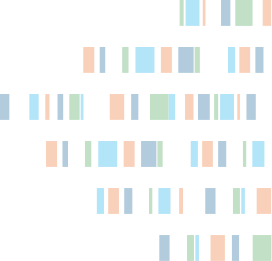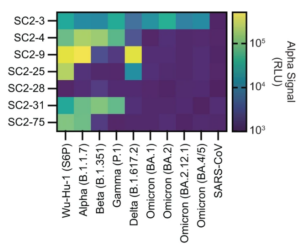In an era of pandemic-inspired innovation, new technologies are emerging to enable rapid antibody therapeutic development. We are excited to highlight the power of cell-free protein expression to accelerate antibody discovery workflows. Cell-free expression saves valuable time and costs by supporting linear DNA templates, having short reaction times, skipping purification, and proceeding directly to binding or activity assays after protein expression.
As an example of a rapid cell-free antibody discovery workflow, A.C. Hunt et al. recently published a high-throughput method using a bacterial cell-free system in Nature Communications1. 119 unique sequences of novel antibodies against SARS-CoV-2 were obtained from FACS-sorted B cells isolated from spike-immunized mice. Next, the team used commercially synthesized gene fragments to prepare linear template DNA for cell-free expression of synthetic antibody fragments in a homemade cell-free system. The researchers rapidly expressed all 119 antibody constructs and, without purification, screened for binding against SARS-CoV spike proteins.
Figure 4f – heatmap of synthetic antibody-antigen binding analysis by AlphaLISA following cell-free expression.
A heatmap, Figure 4f, was prepared to show binding results for several interesting antibody constructs where a high “Alpha Signal” (yellow) designates high-affinity binding. Most antibodies can only recognize a few spike protein variants with significant affinity, however, construct SC2-3 was surprisingly found with moderate affinity for all SARS-CoV-2 variants.
After receiving their commercially-synthesized DNA fragments, the time to generate binding data was less than 24 hours.
Daicel Arbor Biosciences’ myTXTL Antibody/DS cell-free expression kits provide a solution to conduct rapid antibody discovery workflows, including those demonstrated by A. C. Hunt et al. The myTXTL Antibody/DS Master Mix initiates antibody expression with just the addition of DNA. This Master Mix accepts linear DNA templates, enabling the rapid ordering of novel antibody constructs as linear DNA from service providers, which can then be expressed within hours. The open nature of the cell-free system allows for the direct characterization of expressed antibodies using any suitable technique for analysis in lysates or complex mixtures.
1 Hunt, A. C., Vögeli, B., Hassan, A.O., et. al. A rapid cell-free expression and screening platform for antibody discovery. Nature Communications (2023). https://www.nature.com/articles/s41467-023-38965-w





 Bluesky
Bluesky